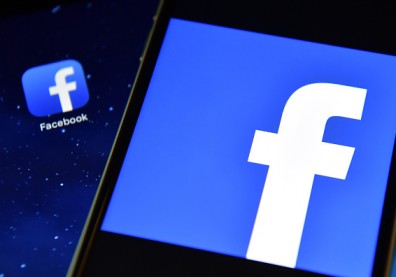Depending on your opinion, Facebook's recent Oculus Rift purchase is either the best thing that could've happened to the social network since the selfie, or the death rattle for VR gaming's most promising chance at turning the genre into what gamers have always hoped for. Either way, it's a very interesting time, watching everyone draw their own lines in the sand.
The peanut gallery's expected mixed reactions heralded the beginning of PR spin and damage control, something Facebook knows just how to finangle. After outmaneuvering criticisims ranging from data mining and surveillance to censorship and privacy, Facebook still retain users numbering in the billions.
Shortly after the deal was brokered, contracts signed and hands shaken, reps from the respective companies came forward to explain the logic behind the deal, as well as justify it.
VRFocus reports that during a recent conference call, Facebook CFO David Ebersman said the purchase was a means to reach a new audience. He said that the network's users spend 40% of their time gaming, and another 40% communication (I expect the remaining 20% is spent cross-posting pictures from their Instagram accounts and "liking" Buzzfeed articles). According to Ebersman, while Facebook excels at the latter, it's with gaming that Facebook needs improvement, and the purchase of Rift is a step in that direction. The company is hopeful that it will allow them to compete in the marketplace beyond mobile gaming.
Shortly after the deal was announced, Palmer Luckley, Oculus Rift co-founder, took to Reddit's Oculus sub-thread and posted the following message attempting to explain the deal:
"I’ve always loved games. They’re windows into worlds that let us travel somewhere fantastic. My foray into virtual reality was driven by a desire to enhance my gaming experience; to make my rig more than just a window to these worlds, to actually let me step inside them. As time went on, I realized that VR technology wasn’t just possible, it was almost ready to move into the mainstream. All it needed was the right push."
"We started Oculus VR with the vision of making virtual reality affordable and accessible, to allow everyone to experience the impossible. With the help of an incredible community, we’ve received orders for over 75,000 development kits from game developers, content creators, and artists around the world. When Facebook first approached us about partnering, I was skeptical. As I learned more about the company and its vision and spoke with Mark, the partnership not only made sense, but became the clear and obvious path to delivering virtual reality to everyone. Facebook was founded with the vision of making the world a more connected place. Virtual reality is a medium that allows us to share experiences with others in ways that were never before possible."
"Facebook is run in an open way that’s aligned with Oculus’ culture. Over the last decade, Mark and Facebook have been champions of open software and hardware, pushing the envelope of innovation for the entire tech industry. As Facebook has grown, they’ve continued to invest in efforts like with the Open Compute Project, their initiative that aims to drive innovation and reduce the cost of computing infrastructure across the industry. This is a team that’s used to making bold bets on the future."
"In the end, I kept coming back to a question we always ask ourselves every day at Oculus: what’s best for the future of virtual reality? Partnering with Mark and the Facebook team is a unique and powerful opportunity. The partnership accelerates our vision, allows us to execute on some of our most creative ideas and take risks that were otherwise impossible. Most importantly, it means a better Oculus Rift with fewer compromises even faster than we anticipated."
"This is a special moment for the gaming industry — Oculus’ somewhat unpredictable future just became crystal clear: virtual reality is coming, and it’s going to change the way we play games forever.
I’m obsessed with VR. I spend every day pushing further, and every night dreaming of where we are going. Even in my wildest dreams, I never imagined we’d come so far so fast. I’m proud to be a member of this community — thank you all for carrying virtual reality and gaming forward and trusting in us to deliver. We won’t let you down."
Interesting how Luckley claims Facebook is "aligned with Oculus culture," because other developers are citing Facebook policies as the exact reason they're disassociating from developing for it. But that's a whole other can of worms...
Establisher of the modern day FPS and current Rift CTO John Carmack wasn't nearly as "rah rah," but has been supportive of the decision, illustrated by with some recent tweets:
The deal hasn't changed things much for the company. "For the record," he began, "I am coding right now, just like I was last week.I expect the FB deal will avoid several embarrassing scaling crisis for VR."
"I have a deep respect for the technical scale that FB operates at. The cyberspace we want for VR will be at this scale," Carmack later tweeted. Words were brief, but Carmack promised he would have more "in a couple days after things die down," jokingly adding, "I suppose I will get a FB account now..."








![Facebook Messenger Group Calling Now Available [Conference Call]](https://1779241332.rsc.cdn77.org/data/thumbs/full/78176/396/277/50/40/facebook-messenger-group-calling-now-available-conference-call.jpg)

